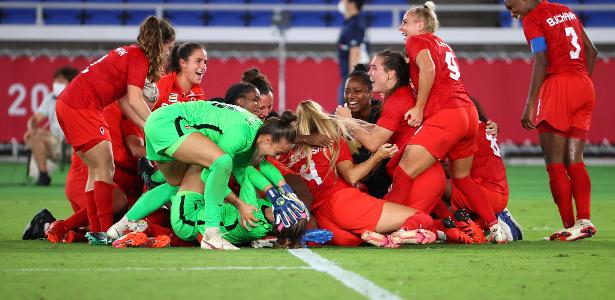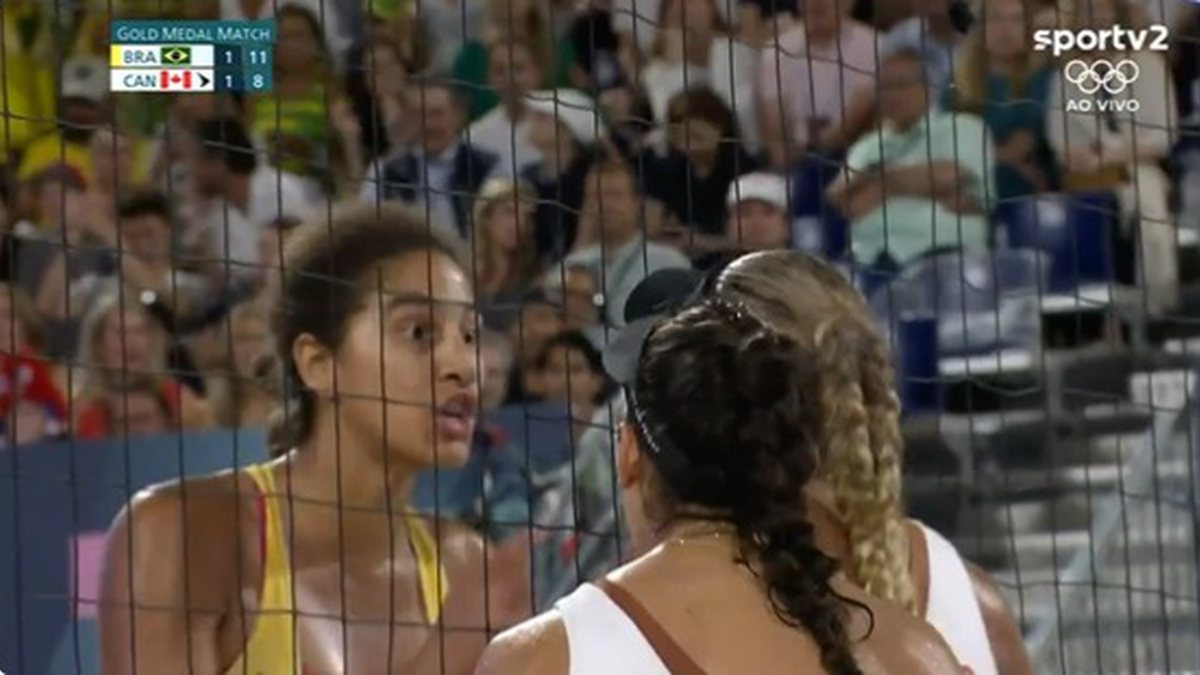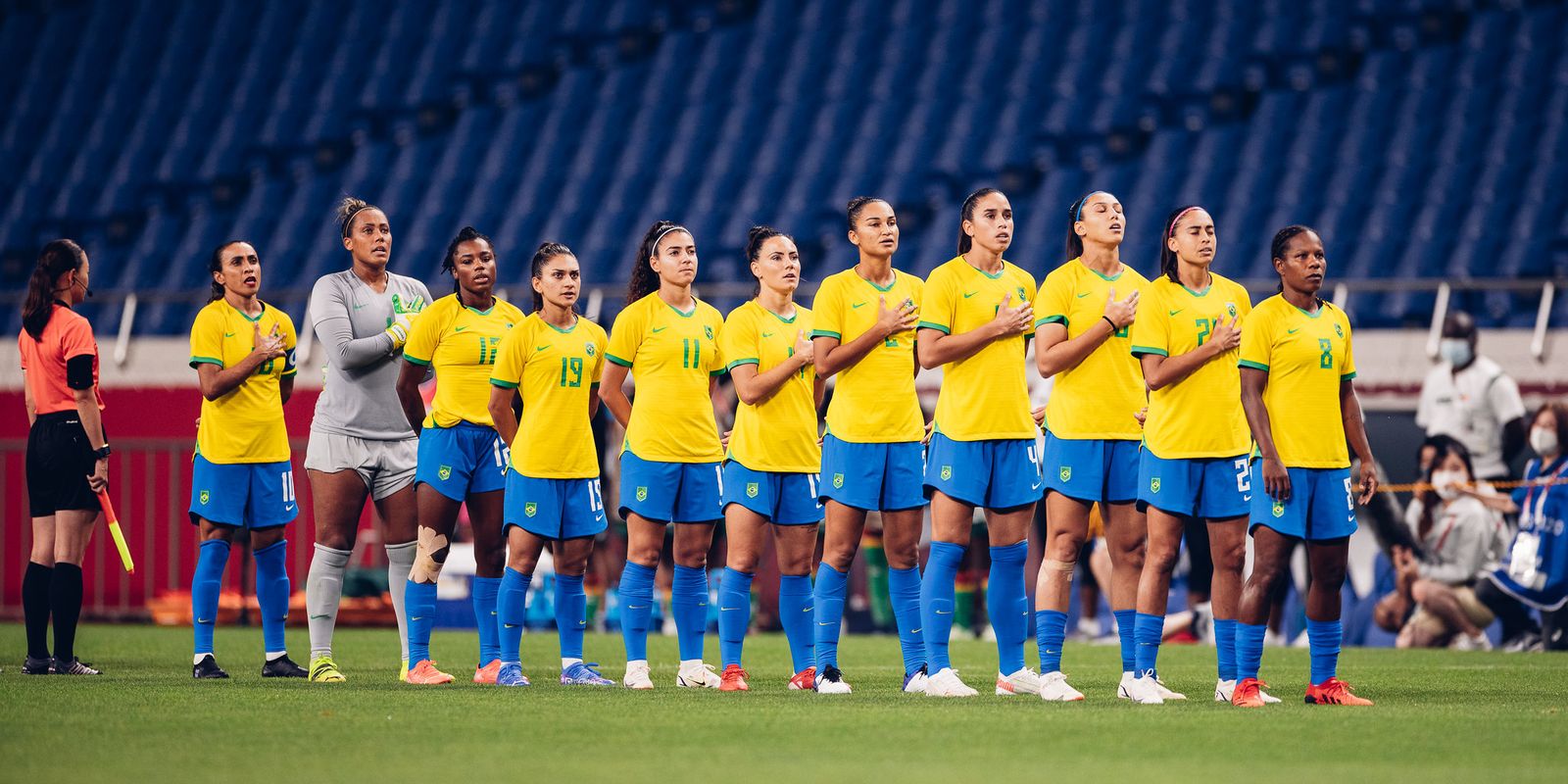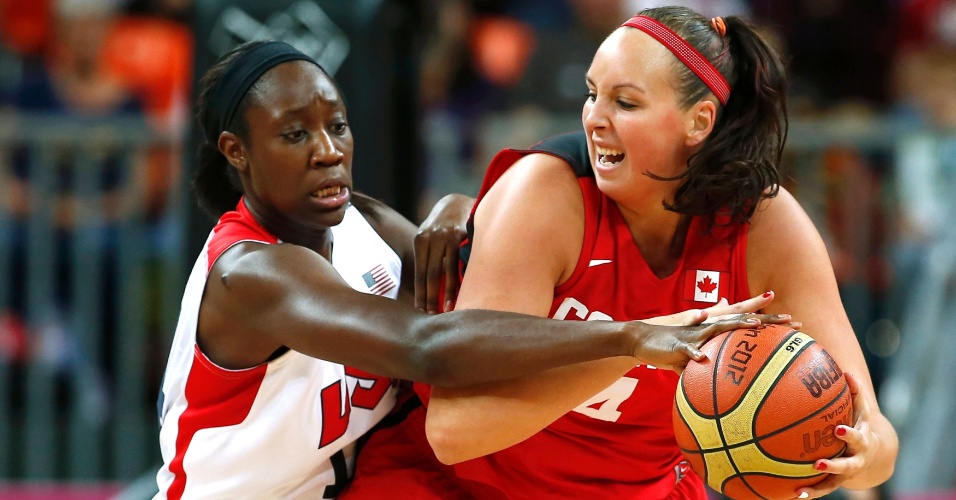The Canadian team won 3-2 on penalties to claim the coveted Olympic gold medal for the first time in its history. The women’s football final at the International Stadium Yokohama featured goals from Stine Sweden’s Blackstenius and Canada’s Fleming, from the penalty spot, in regulation time. With a 1-1 draw, the title was decided for the first time on penalties and coach Beverly Priestman’s men won.
Canada reached the gold medal competition for the first time, after winning two bronze medals in 2012 and 2016. The Canadian team overcame itself and surpassed Sweden’s 17-game unbeaten streak. The Canadians advanced to the final after beating Brazil in the quarterfinals and the United States in the semifinals, who won bronze.
The game
The start of the first half was marked by Swedish chances. In the first minutes of the match, the Swedes created scoring chances through shots and had possession of the ball, but were unable to score. With high scores, Canada had difficulty playing and exchanging passes in the defensive field.
Halfway through the first leg, the Canadian team grew and found space with long passes, had some opportunities, but did not take advantage of them. Playing more technical football, Sweden involved the opponent in a good exchange of passes after stealing the ball and scored the first goal of the match, with Stina Blackstenius in the 34th minute of the first half. Asllani made a low cross and the forward hit it first time, finding the back of the net.
The second half started similarly to the first, Canada improved and moved forward, but Sweden with the ball were very dangerous as they moved forward and created more volume in the game. However, in the 20th minute, Chapman received the ball from Rose and crossed from the left side to Sinclair, the Swedish defender. Ilestedt arrived late and brought down Sinclair in the area. VAR awarded a penalty and Fleming found the back of the net on the right, levelling the final.
After Canada equalized, the team had more great chances with Lawrence, who finished without a goalkeeper, and Fleming, who tried to hit the angle. The Canadian team was superior and kept possession of the ball in search of the victory. Sweden responded with a great chance from Rolfo, the player’s shot went very close to the goal.
The Canadian team played a great second half, getting organized and attacking more, but couldn’t stop the game from going into overtime. Fleming had a great shot in the last minute that went just wide of the post.
Extension
The first chances of overtime came from Canada, who put pressure on their opponents, but Sweden turned them away. The game remained well balanced with chances on both sides, despite physical exhaustion. With a solid defense, the Canadians neutralized the Swedes, and without being able to infiltrate, Anderson fired a shot from outside the box that went over Labbé’s goal.
In the 6th minute of the second half, Schough won a corner for Sweden. Asllani crossed the ball to Hurting, the ball went to the right side of the goal with great danger. Canada then responded by creating a play on the right side with Rose beating the marker and crossing to Huitema, heading towards the left side of the goal.
At the end of overtime, Sweden went all or nothing and was better than Canada. Even with a few chances with Asllani, the Canadian defense managed to hold on and go all the way to penalties. With the game constantly changing control, the teams balanced each other out and had a very competitive game.
Penalty shootout
With mistakes on both sides, Canada beat Sweden on penalties 3-2, Grosso took the final kick and converted to give Canada an unprecedented title, with a gala performance from the goalkeeper. Labbé. Asllani, Anvegard, Seger and Anderson missed the penalty shootout for the Swedish team and it was not enough for the team, which reached the final for the second time. At the 2016 Olympics in Rio de Janeiro, the team was defeated by Germany and won silver.
Taboo maintained
With Canada’s title, led by Beverly Priestman, a recent taboo in women’s Olympic football remained. The last time a team was champion without a coach on the bench was at Sydney 2000, when Norway, then led by Per-Mathias Høgmo, climbed to the top step of the podium.
Since then, five gold medals have been won by teams led by women. The United States, in Athens in 2004, had April Heinrichs on the sidelines. In Beijing 2008 and London 2012, the coach was the Swede Pia Sundhage, now at the helm of the Brazilian team. At Rio 2016, Germany won under the command of Silvia Neid.

“Evil pop culture fanatic. Extreme bacon geek. Food junkie. Thinker. Hipster-friendly travel nerd. Coffee buff.”






:strip_icc()/i.s3.glbimg.com/v1/AUTH_da025474c0c44edd99332dddb09cabe8/internal_photos/bs/2024/x/2/N6XJkFRYWxJY6hAeUEtw/betty2.png)
